Brigg | Interview | “Heavy rock from basement with rural hippie vibes”
Brigg were a rural Pennsylvania folk–tinged psychedelic band formed by three high school friends: Rob Morse, Jeff Willoughby and Rusty Foulke.
In 1973, they borrowed the money to record their first album together. They called it ‘Brigg’ after one member saw the name in a dream. It was recorded at a grocery store converted into a 4–track studio. The photos for the cover were taken in a purportedly haunted house in Danville. The band members pressed 1000 copies and sold some to their friends but never played a live show together. They divided the remaining copies between them and went their separate ways. Several decades later, the ‘Brigg’ album became a collector’s item and was bootlegged all over the world.
Gear Fab Records (CD) and Out-Sider/Guerssen (Vinyl) recently announced the first ever legit vinyl reissue, sanctioned by the band members.
Where and when did you grow up? Was music a big part of your family life?
Jeff Willoughby: I was born in 1955 and raised in Danville, Pennsylvania, a small borough in the eastern part of the state almost exactly centered north and south. I still live there in a rural setting about three miles outside of town.
Yes, my family is a musical family. My grandfather played in bands in the 1920’s to put food on the table when work was hard to come by. He said they would pass a hat at the end of a performance at a fire hall or similar venue. If he made $2.00 for the night he considered himself lucky. My mom and her brother both played piano. Her brother had a small combo that played local venues. My dad played guitar non-professionally and my sister played piano.
Rob Morse (Harry Morse): Danville, PA., from 1958 to 1972.
Rusty Foulke: I was born and raised in Danville, Pennsylvania. Grew up in the late 1950’s and 1960’s listening to AM Top 40 radio. My mother was a virtuoso pianist and singer. My father was an artist / singer who sang professionally for a short period of time. Music in our home was a huge and constant part of daily life.
When did you begin playing music? What was your first instrument? Who were your major influences?
Jeff Willoughby: I first started gaining an interest around the age of 9 and took up lessons on the saxophone. My instructor was a portly man with a bald head. Every time I would hit a wrong note his entire head would go beet red! Haha, I couldn’t read fast enough to play anything and eventually gave it up. At 11 or 12 I started plunking around on the piano. I taught myself all the chords I needed to know by ear. I eventually picked up an old cheap guitar dad played and he wrote down basic chords. But the guitar was difficult to play and I couldn’t press the strings down. One day he bought a 1949 Gibson steel laptop guitar. I still have it. I was amazed that it was played with a steel bar gliding over the strings! What a relief! Dad liked “country and western” music, as he called it. So, I learned a lot of those songs and jammed with him and a friend of his on occasion. Soon thereafter, my cousin brought a 1965 Fender Jazz bass out to our house. He wanted my dad to teach him how to play it. Dad suggested that he leave it there for the weekend so that he could familiarized himself with it. He did. I picked it up and was amazed how easy it was to play. No chords to learn. I taught myself how to play bass that weekend by learning the notes by comparing them to the piano and listening and playing to a Grand Funk Railroad album.
Rob Morse (Harry Morse): In 1962 I started to play drums. I was inspired by Buddy Rich and Gene Krupa. Later on in the 60s, by Ginger Baker then John Bonham. Neil Peart in the 80s and 90s, then Gavin Harrison.
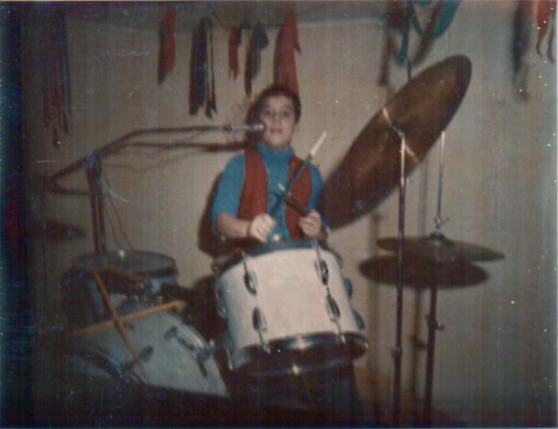
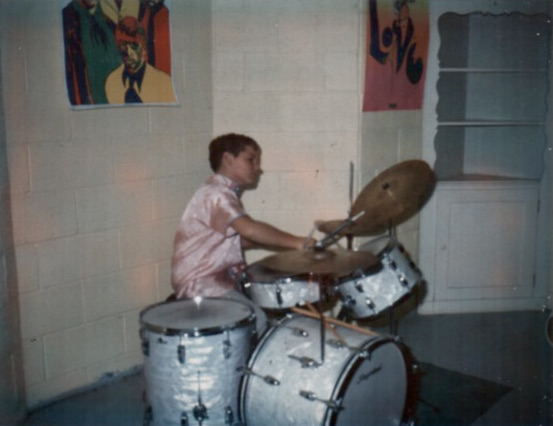
Rusty Foulke: I started my musical journey on a plastic Emenee guitar in the mid 1960’s that I had to tune with pliers. Then on to a twenty four dollar Silvertone acoustic I got for Christmas.
Highly influenced by the Beatles and the British “invasion” acts. As far as American bands, James Gang, Nazz, Jimi Hendrix Experience , Duane Allman / The Allman Brothers Band.
Were you in any bands before forming Brigg?
Jeff Willoughby: I met Rob Morse on the school bus. Our homes were near each other. We talked and discovered our mutual interest in music and eventually got together in his basement to jam. He was on drums and I was playing the steel guitar! I knew only some standards and those country songs so it was kind of a strange sort of sounding practice. Realizing that, my dad soon after bought me a bass and we continued on like that, bringing into that mix two of our classmates: John Roberts to play lead guitar and Libby Kough to play rhythm. We all sang and we played the hits of the day. This was around 1967-68. We were young teenagers. We named the group The Whey just to be “psychedelic” and cool and sarcastic. “The Way” just would not have cut it. We played local gigs at the YMCA and church basements and actually got paid for it!
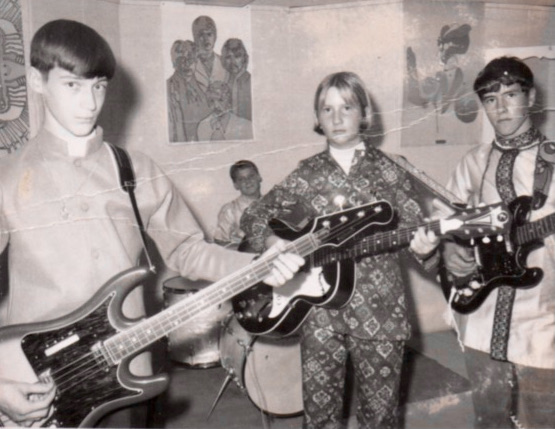
Eventually John and Libby left the band. I don’t remember why but it may have had something to do with family vacations. Rob and I sat around one day brainstorming to come up with a guitar player. He mentioned “that kid who lived up on the hill with the Beatle haircut. He’s really good”. He was referring to Rusty Foulke. We asked him to join us and he said, “yes”. We renamed our trio “Stratus” and played much more harder edge music, like Cream and Black Sabbath. I don’t recall playing any paid gigs as Stratus but we would have daylong jams in Morse’s double car garage with the doors wide open. If I remember correctly, it was over the summer of 1968. That’s how we cut our musical teeth and bonded as musicians and brothers.
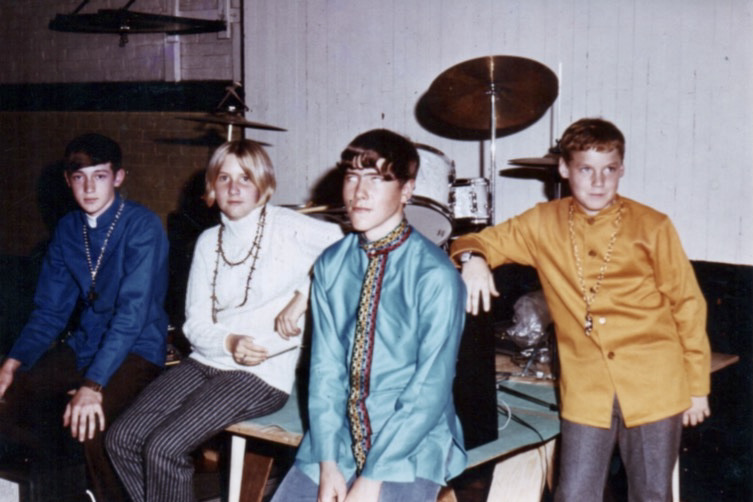
Rob went away to school at Wyoming Seminary an hour away for his freshman year of high school. That effectively stopped our playing together. Soon after, Rusty called me and suggested we keep playing together and there was a band across the river in Riverside and was made up of classmates of ours. Maybe they would want to merge? We worked out the change in personnel, having their bass player, Jim Bower, become a roadie and soundman and added Rick Klinger on drums, and John Hartman on keys, guitar and vocals. This was the beginning, the first version, of Hybrid Ice. We named the group “Part Two”.
Rob Morse (Harry Morse): Yes, Jeff Willoughby and I formed the band “The Whey”. We primarily did cover songs and performed locally at YMCA dances events, and a number of Church functions and private parties.
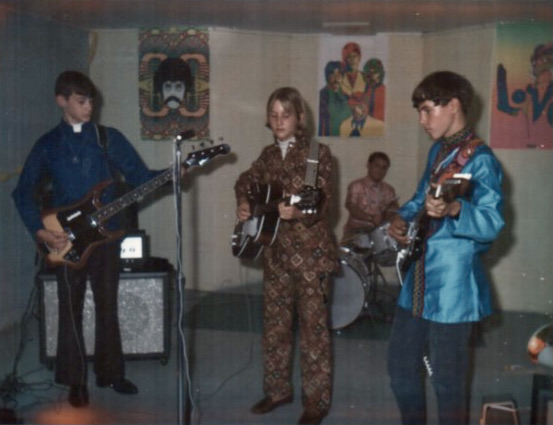
When the members of “The Whey” decided to move on, Jeff and I joined up with Rusty and formed “Fresh Oil” and then “Stratus”. We would jam for hours and explore new avenues that were becoming more evident as Music, in general, evolved. We played for a few private parties at that time.
Rusty Foulke: Nothing serious. Although Hybrid Ice started around the same time.
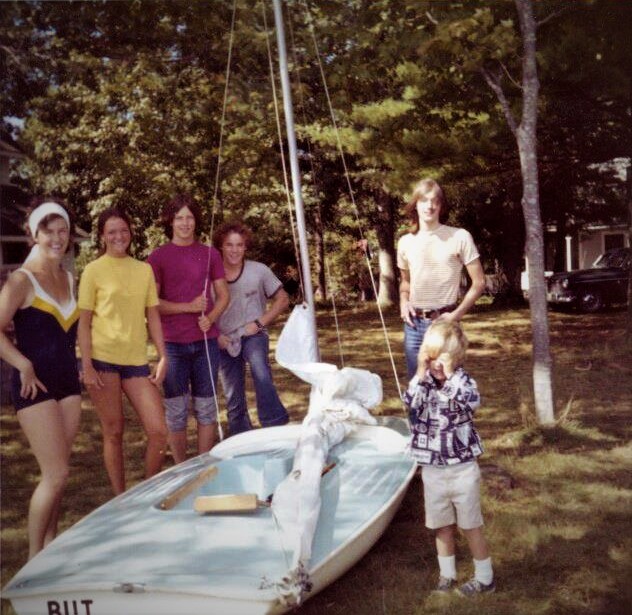
“The name came from a dream”
What’s the story behind the formation of Brigg?
Jeff Willoughby: Rob continued to attend schools out of the area during his high school years. He and I had been corresponding and he told me he had written some songs. On one of his breaks, he of course, came home and we got together to play them. I believe this was the summer of 1972 and our area, especially in town, had been devastated by Hurricane Agnes. We weren’t affected where we lived but the town was completely inundated by the flood waters. Anyway, we worked out parts and vocals and it just came together. Our voices sounded good together. We played them over and over and eventually went to the place where Hybrid Ice practiced and played them through the sound system. I recorded that session on a small Webcor cassette deck. All things considered, it sounded pretty magical.
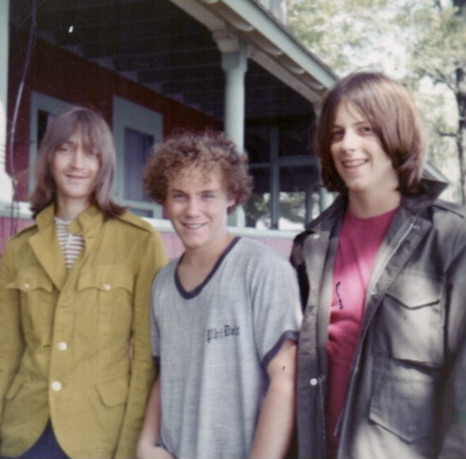
Rob Morse (Harry Morse): First and foremost, Jeff, Rusty and I were very close friends. We hung out together, slept out under the stars, smoked “Swisher Sweet” cigars and drank “Cloud 9” beer when we could get it. We were all under 21 years of age which was the drinking age in PA. at that time. We got up to all sorts of shenanigans, moving roadwork excavators, relocating bus shacks, raiding cornfields and generally reaping harmless havoc.
Following this period, in 1969, as a Morse family member, I was expected to “go off” and attend a prep school. I was totally against leaving my friends and bandmates, but it was what was expected of me, and so reluctantly, I complied. I continued to play drums, and started to play guitar and write songs. I attended three different prep schools in three different states climbing the academic ladder. I graduated in 1972 from Wyoming Seminary in Kingston, PA. In the meantime, my parents were moving to Massachusetts. In the fall of 1972, I was to begin my freshman year at New England College in Henniker, NH.
At that same time, Jeff and Rusty were both working in the “Hybrid Ice”. Jeff and I had worked on a few of my acoustic songs and we thought that it would be cool to put together a record. We further explored this venture with Rusty and “Brigg” became a project. The name came from a dream that Jeff had where he saw it written on something. He could definitely elaborate on the name’s origin. As it happened, while attending New England College, I was able to submit the ‘Brigg’ album endeavor as a January Term Project. This submission was accepted by the College, and the ‘Brigg’ album was recorded in January of 1973.
There’s little known about your 1974 self-titled album. Is this the sole recording as Brigg or did you also release any singles?
Jeff Willoughby: It was released in May, 1973. Yes, other than the cassette tape I mentioned previously, there were no more recordings, no singles, no airplay. No one paid attention to it – except the many bootleggers – and our classmates who purchased copies at our high school. Many claim to still have them.
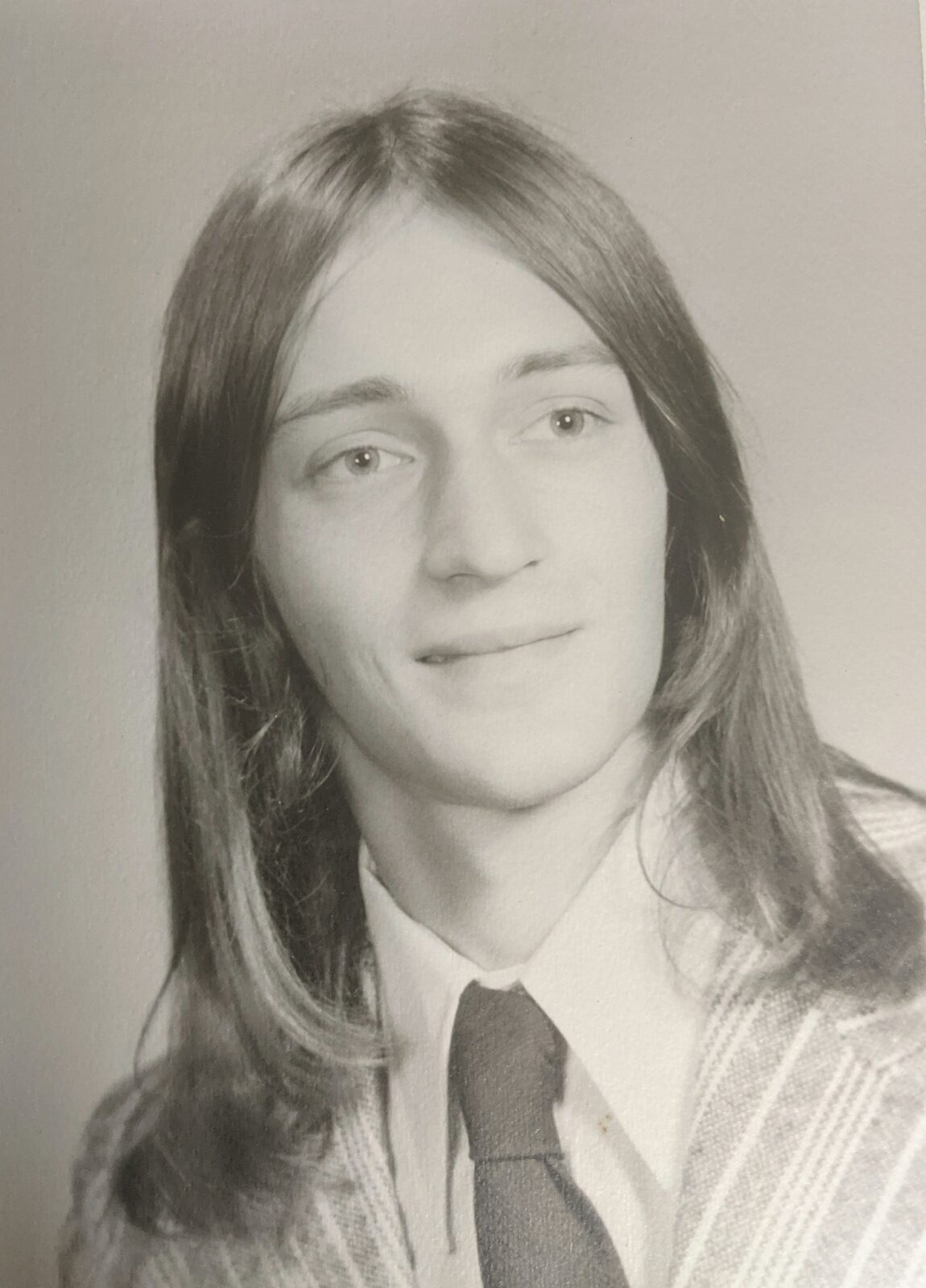
While we are on the subject of Brigg recordings, I am very happy to announce that there will be at least one more Brigg recording to be released on the 50th Anniversary of the original release, May 2023. It is tentatively titled ‘BRIGG 50’ and will include songs written and performed by Rob, Rusty and myself. It will be available as vinyl and downloads.
Rob Morse (Harry Morse): Actually, the ‘Brigg’ Album was released in May of 1973. This was the one and only release that I am aware of. A collector located me in 1989 and informed me that the album had been bootlegged in Italy in 1988. He offered me a copy of the Italian bootleg in exchange for an original album. I went forward with this exchange and I currently have a copy of the Italian bootleg. Of interest, all copyright information was wiped from the original, also the cover was graphically enhanced in Milan. In 1998 the album was converted to a CD and released out of Holland. Jeff called me up and informed me of this, and stated that a company by the name of “GoldMine Records” offered the album in CD form. I located “GoldMine” and gave them a call. I made an inquiry in regard to the ‘Brigg’ album in CD form. After checking, the gentleman with whom I spoke informed me that they indeed had the album as a CD. I then requested that he describe the album cover to which he responded, “There are three burned out guys hanging out of the attic window of a stone house.” I also asked him to describe the back of the album, at which time he stated “What do you care man, these guys are all dead”. Needless to say, I never informed him that I was quite alive and I went ahead and purchased the CD for $20.00.
Did you self-release the album and if so, how many copies were originally pressed?
Jeff Willoughby: Yes, the album was a recording project package deal. We got 40 hours in the studio (including mixdown), and 1,000 copies pressed for $1,800.00. We borrowed the money to do it and we never recouped our cost.
Incidentally, I didn’t know if you were made aware that Rusty and Rob’s names were reversed on the original LP. It was my fault. I switched the photos’ position on the mechanical and forgot to switch the names. The studio sent it out that way, never realizing the error. We kept it that way for the reissue to keep it 100% authentic.
Rob Morse (Harry Morse): Yes, 1000 copies.
Listening to an album today, what runs through your mind?
Jeff Willoughby: I hear all the things we could have fixed if we had had the money to do so. (laughs)
Other than the technical things, it reminds me of how completely boundless youth is. There was no stopping us from doing that record. I remember my parents worrying that I had gone into debt for it – especially when it didn’t sell. Other impressions…I’m right there in the studio feeling like we were doing what we were supposed to do. A dream realized. And the songs themselves take me to Red Lane (where Rob and Rusty lived) and all the night we slept out under the stars in sleeping bags. We had our entire lives ahead of us and it felt like we were getting off to a great start. No fear. No fear of anything whatsoever.
Rob Morse (Harry Morse): I listen to its unrefined raw appeal. I also can appreciate its statement and relevance for that time.
When I listen to current recordings, there is a certain degree of inherent sterility that attempts to overshadow many songs. The muse, lyrics and content continue to be projected even in the light of apparent digital control, more so in genre specific compositions.
Rusty Foulke: I’m completely amazed that the Brigg record has drawn so much attention internationally. I think it had to do with the cover and the concept. The recording is fairly basic from both a technical and musical regard but still comes across well. Nice to know that the original vinyl is highly sought after by collectors.
Where did you record it and what kind of gear did you have?
Jeff Willoughby: Meanwhile, while we were being boys and sleeping out at Rob and Rusty’s houses, the engineer who recorded a couple of original songs for Hybrid Ice in the studio of a radio station, bought an old Aunt Nellie’s grocery store and was converting it into a recording studio, Susquehanna Sound Productions, located in a town a few miles south of ours. By the time we decided to make the recording and had secured the individual loans, the building was operational but far from being finished, physically speaking. You could see to the basement from cracks in the plank flooring, pink insulation on the walls, etc.
I don’t remember what the mixing console was but it looked ancient. The tape deck was a huge 4 track we called “the refrigerator”. He did have an impressive Neumann vocal mic, though. And we had the musical equipment of the times; Marshall, Ampeg and Sunn amps. Altec-Lansing sound system, Gibson guitars…electric piano.
Rob Morse (Harry Morse): Bob Spangler was just starting out at Susquehanna Sound Productions in Northumberland PA. I believe that he used a 4 track tape machine. Jeff and Rusty would know more of these specifics. I recorded my acoustic songs with an Aria acoustic 6-string.
Rusty Foulke: Brigg was recorded at Susquehanna Sound (now 8 Days A Week Studio) in Northumberland PA on an Ampex four track deck nicknamed “the four track refrigerator”. Mix down was done on a Studer quarter inch two track. Microphones were, among others, Vintage Neumann U87’s and U67’s. My parts were played on a 1970 Les Paul Custom through a 1971 100 watt Marshall lead amp.
Would you like to share what was the typical creative process for the band? What are some of your favourite songs and what were they about?
Rob Morse (Harry Morse): For myself, I just write and sing. My songs usually come to me all at once. Oftentimes I hear backing instruments and harmonies. With ‘Brigg’, my contributions were already written. Jeff and I had been singing together and he augmented ‘Linda’ with his wonderful flute parts. Jeff and Rusty also had a hand with Bob Spangler, in the effects that enriched the song ‘Universe’. ‘Linda’ was written about a childhood friend. ‘Universe’ is somewhat self explanatory, about a young man (myself) attempting to make sense of this life, and then finding a way. ‘New Found Rain’ drew some interest from a company in Atlanta (GRC Records). Jeff knows more about this story. Once again, ‘New Found Rain’ is about facing the world as it was, sensing the insensible man fighting against himself, “can we live against one more”. “And you know” was an ecological statement including pleasing, natural imagery with man made destruction.
Rusty Foulke: Songs for Brigg were written individually. Perhaps Jeff and Rob collaborated but I’m not sure. I wrote the “electric” songs and Rob wrote most of the acoustic. Jeff also contributed a song as well. My favorite Brigg song is ‘Universe’ written by Rob.
Jeff Willoughby: Rusty’s songs were already written and worked out at Hybrid Ice practices. By this time we had another keyboard player, Webb Kline, and moved John Hartman to lead vocal and guitar. Webb is extremely gifted as is indicated by his solo in ‘Hey Mister’. I’ve been asked about the books I have written, too. They are like children, all different, and can’t be favorites. But if one song stands out as “representative” of the project, it would have to be ‘Universe’ since that’s the one that got it all started. ‘Linda’ is nice too because I know it’s an inspiration for Rob. But since I had literally just taught myself to play flute while working on the songs, I wish I had some of those solo notes back! (laughs) My song, ‘The War Is Over’, was a fictional romance based around the Vietnam War coming to an end. The tympani on it were taken as salvage from the band room at our high school after they were caught in the flood. It may be of interest to know that my vocal on ‘Took It Away’ was the first time I ever sang the song. Rusty originally did the lead vocal but when we tried it in the studio my harmony part in a falsetto did not blend well with his lead vocal. Someone suggested we switch parts. So I sang lead on it for the first time – and on a recording no less. (laughs) Hybrid Ice visited Atlanta GA in 1973 and someone we met there set us up with an appointment with Clinton Moon of GRC records. He had an “up and coming” artist and expressed interest in ‘New Found Rain’ but he wanted to change the lyrics. We called Rob and he didn’t like the idea of altering his song. The artist was Sammy Johns (‘Chevy Van’).
Did Brigg often play gigs? What were some clubs you played and what were some other bands that shared stages with you?
Jeff Willoughby: Brigg was a studio project only. We never played a single gig as a band. Hybrid Ice, on the other hand, was playing a lot at small bars, high school concerts, and a few festivals. We didn’t turn professional until 1978 when we signed with a booking agency in Atlanta and went on the road playing full time.
Rob Morse (Harry Morse): Brigg never performed publicly. I did play bass guitar on the song ‘Locomotive Breath’ by Jethro Tull for Hybrid Ice at a club in Shamokin, PA. The club, “Conn’s Garden Club”, doesn’t exist anymore. Of note, Shamokin is a coal mining town. The downtown area is permeated by a wonderful odor of grilled onions and hot dogs. These delicacies continue to be produced by the “Coney Island” cafe.
The gig at “Conn’s” took place on a very cold wintery night. It had snowed all that day, but did little to dissuade the local clientele from coming out to have a few beers, listen to a local band and check out the scantily clad female dancers. During the performance of ‘Locomotive Breath’ there was a young female dancer that was positioned directly in front of Rusty. The stage was very hot and sweaty. All of a sudden, Rusty’s sense of smell was assaulted and overwhelmed. In response, he attempted to back up to the left of the drums. He stumbled over something and crashed through a rear stage loading door, falling a few feet into a snowbank. He never missed a beat and continued to play the song. That was amazing.
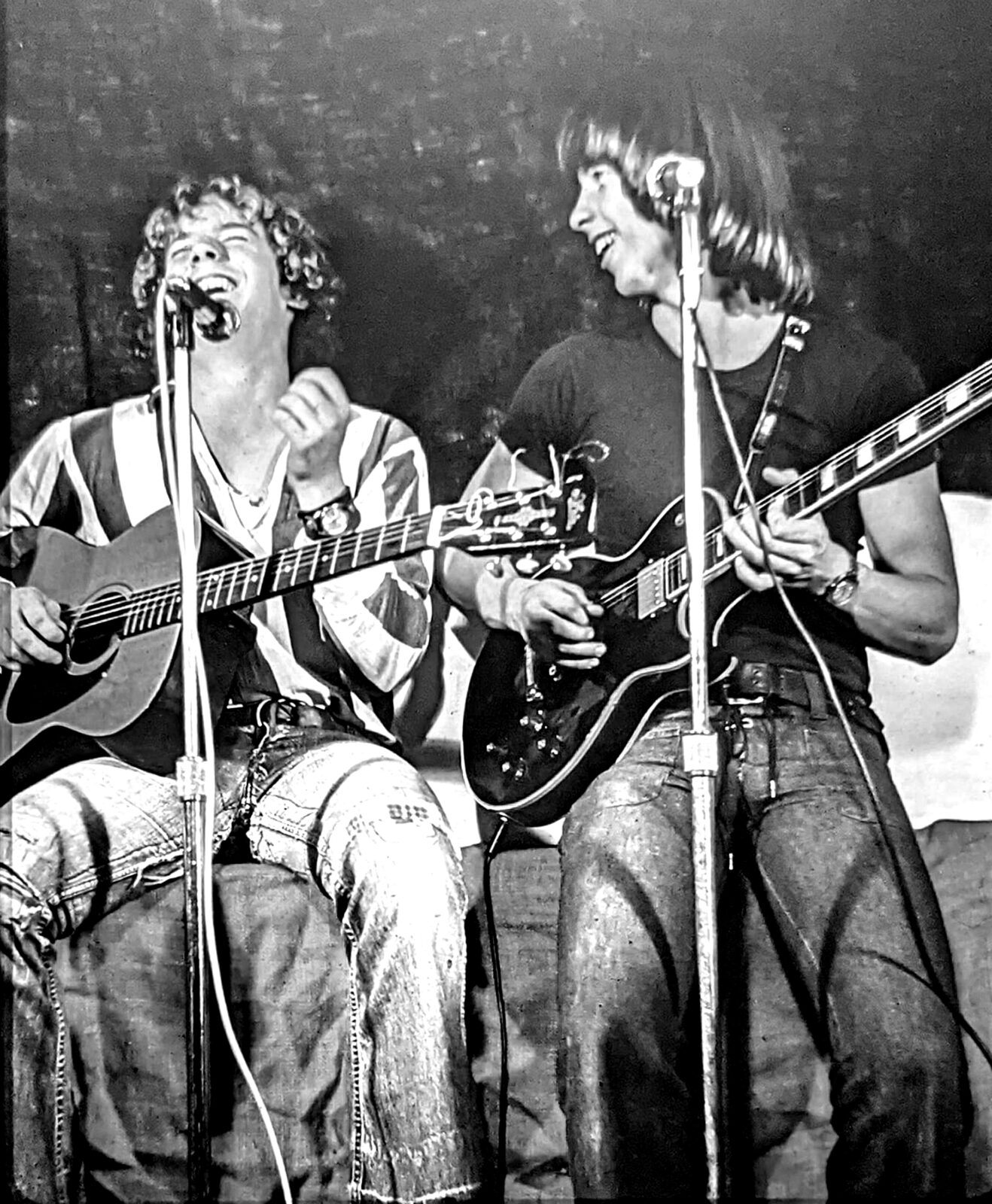
Any crazy stories you would like to share with us?
Jeff Willoughby: Way too many to mention, boys being boys. Especially with the sleep outs. We laughed a lot (no, it wasn’t drug induced) although we would sometimes have older friends get us a six pack of beer (the drinking age here is 21). We had very absurd and fertile imaginations and a sense of humor. There were games we played to crack each other up. One was where we mismatched unrelated nouns and would invent these crazy sounding mutants. The closest thing I can think of at the moment – and we may have invented this one at the time – is Porcupine Tree. No offense intended. I love the band. Or Skunk Foot. So many lost to time. Another one was to invent band names that we thought were funny because they had nothing to do with music. We would laugh hysterically – and yes, these came up – The Cars, The Police. Then the first New Wave movement hit and there they were! You can’t imagine the belly laughs we got from that.
Rob Morse (Harry Morse): Brigg Story | The Mystery Of The Neglected Deer
Just prior to the days of Brigg, as best of friends, Rusty, Jeff and I would have “sleep outs” under the stars in the lower front yard of my family house on Red Lane. We would on occasion walk three miles down to the Hospital in order to sneak into the extensive tunnel system that ran beneath the Medical Center. The plan was always the same. We would always visit the well stocked vending machines. The machines offered a wealth of soda, candy, snacks, cigarettes and cigars to augment our ambitious “sleep out” endeavors. We would always accomplish these missions in a covert manner and then engage in some minor shenanigans on the walk back home in the wee hours of the morning.
On one such night, at around dusk, we were walking down Red Lane toward the hospital, when we encountered a hunter. We asked him if he had seen anything, and he replied that he indeed had come across a deer that had apparently died of starvation from a broken jaw. We then made inquiry in regard to the deer’s location, and he indicated that it was down in a patch of woods behind a neighbor’s house. We thanked the hunter and wished him well, then proceeded on our way to the hospital. We joked about finding this unfortunate deer, and discussed perhaps depositing the corpus delicti in the driver’s seat of the local pathologist’s car. The local pathologist was a great guy and had a wonderful family. We were neighbors on Red Lane, and our parents and families were all good friends.
In the wee hours of the morning, the three of us set out and began searching the wooded area where the hunter had come across the deceased deer. We had been searching for about twenty minutes when Rusty called out that he had found the body. Jeff and I converged on his location. We examined the deer, and formulated a plan to move the deer out of the woods, across some fields and Red Lane up to the pathologist’s house. The corpse was heavy and awkward, refusing to move. Its transportation demanded a creative solution. Just then I recalled that a neighbor boy had constructed a tree house not too far away. I then suggested that we remove a piece of 4’ X 8’ plywood from one of the walls of the tree house and use it for the transportation of the obstinate corpse. We would then act as its pallbearers. Everything worked well and we only had to duck down once at the Red Lane crossing for the approach of an oncoming car. Upon arrival at the pathologist’s house, we found ourselves fortunate that his car was parked outside the garage. After several attempts at placing the deer’s carcass in the driver’s seat, we were stymied by the inflexibility of the rigorous corpse. We took a look around and agreed upon a plan “B”. Plan “B” involved suspending the body of the dead deer from a clothes line in the pathologist’s back yard. There was a picture window that would provide for an excellent view from the breakfast table in the morning. Unbeknownst to us, the picture window curtains were drawn closed. We were also not aware that the pathologist and his family were departing on a vacation later that very day. On any account, at that point, our shenanigans for that particular night had been accomplished so we headed back to our “sleep out” spot curious as to how our prank would be received.
We heard nothing for at least two weeks, and then the daughter of the pathologist, Linda of the ‘Brigg’ album, approached me and asked me if I knew anything about a dead deer that had been placed in her yard. Of course, cultivating the mystery I played dumb. She went on to inform me that while they had been on vacation, a complaint from one of their neighbors had been filed against them with the Pennsylvania State Fish and Game Commission. Their family had been accused of pet neglect and cruelty to animals. Officers had responded to this complaint and had found the body of a deer that had obviously died of starvation due to neglect while the family was away on vacation. The body was removed and after further review, it was determined that the family was not in any way at fault. It further transpired that the family had departed on vacation the very day that the deer had been posed. They had left the drapes closed during breakfast that particular morning prior to the start of their vacation and had no knowledge of what lay beyond. And so to this very day, the Mystery of the Neglected Deer had never been solved.
The Snake
One early morning following a “sleep out”, I had to relieve myself. I crawled out of my sleeping bag and went up the hill and out behind the shed. As I was experiencing relief from a full bladder, I noticed what appeared to be a bicycle inner tube in a nearby bush. Upon closer inspection, I realized that it was not an inner tube, but a very large black snake. I quickly retreated back down to our sleep out site and awakened Rusty and Jeff. We all ran up the hill returning the the spot where I had encountered the snake. As we approached the snake, it proceeded to take off down the steep hill that was behind the shed. Rusty and I gave pursuit as best we could given the steep decline. Towards the bottom of this hill, Rusty observed the snake slithering into a groundhog hole. Being the Eagle Scout, Rusty wasted no time and reached into the hole, grabbing the very large black snake and pulling it out of the hole. We carried it up to the house and showed everyone the snake. My younger brother Richard was most intrigued and Jeff snapped a picture of Rusty, Richard and I holding it. Rusty then took it to the woods behind the shed and released it back into the wild.
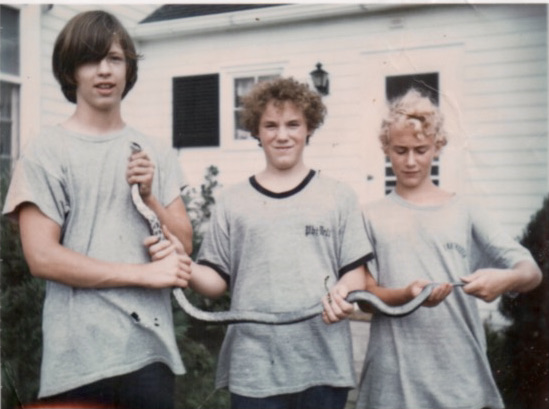
Rusty Foulke: During the “Brigg” period I had become friends with Ronnie James Dio whose band The Elves played regularly at Rolling Green Park in Central Pennsylvania.
An early version of Hybrid Ice opened one of their shows and Ronnie noticed I was playing the correct chords to ‘Purple Haze’ on my Harmony Rocket guitar. After our set Ronnie asked if I wanted to try Dave “Rock” Feinstein’s 1952 Les Paul. A couple of years later I returned the favor when I lent “Rock” my newly acquired Les Paul Custom for an The Elves concert at Bloomsburg University after his guitar neck developed a crack. Ronnie Dio had called my Mom and she tracked Rob and I down in time to have the “Briggs” Les Paul there for the show. Rock’s broken guitar was dropped off at a local Bloomsburg store and repaired but never picked up. The 1958 Les Paul was eventually sold for $100.00 and is now owned by a friend who is a Bloomsburg police parking enforcement officer. I still own the 1970 “Brigg” Les Paul Custom.
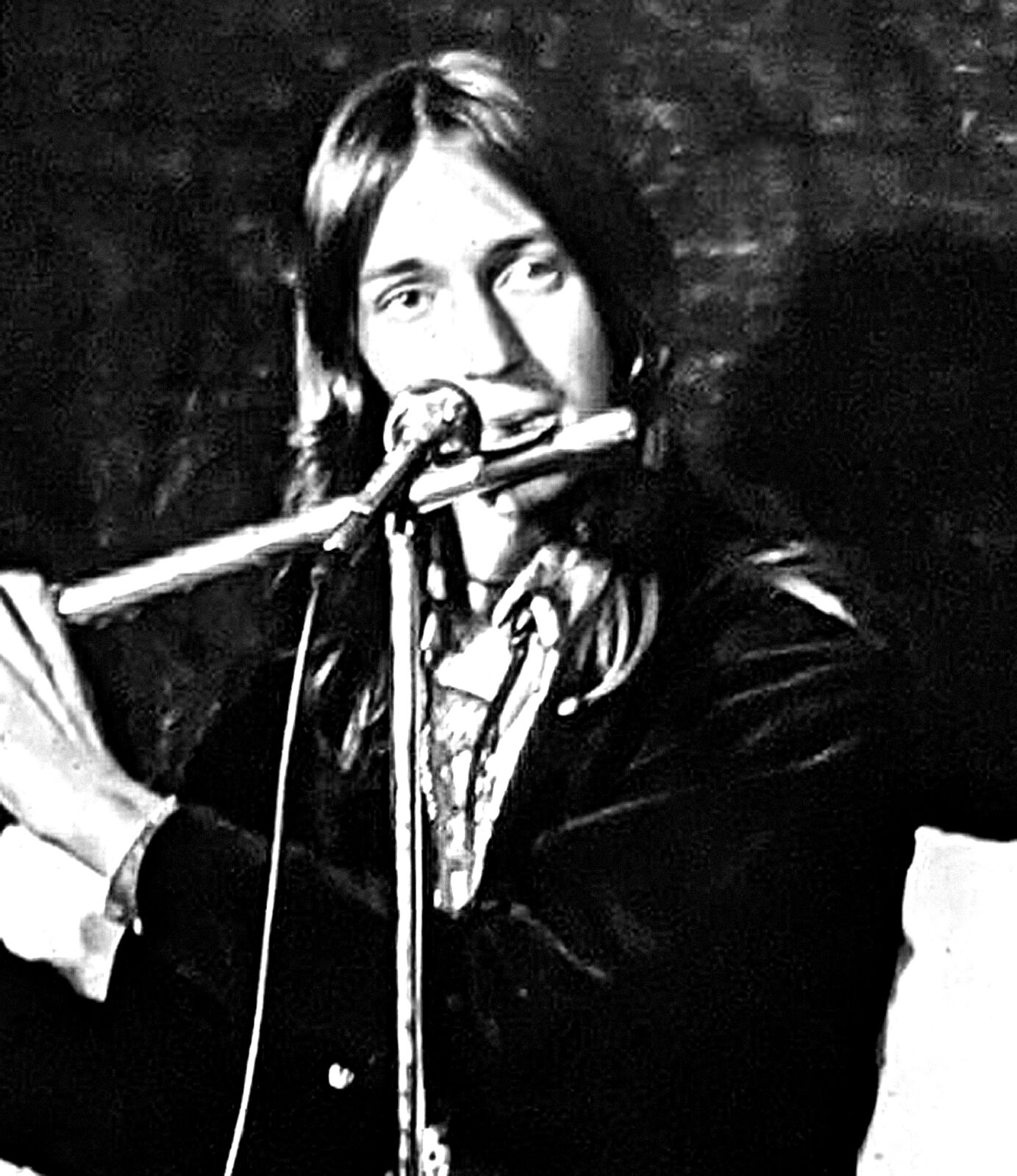
Where was the photo of the album cover taken?
Jeff Willoughby: The house was referred to as “The Haunted” by the locals. It was located on Kaseville Hill just around the corner from Rob’s house. It had been abandoned under strange circumstances. Everything in the house had been left there, even plates on the table, as if the family just disappeared. It was weird. It was also a dangerously unsafe structure. There were wires holding the walls together from the inside. Our high school art teacher, Charles Berkey, took the photo as well as others in the studio and many of Hybrid Ice over the years, as well. Coincidentally, I found out years later, my grandfather knew the family that lived there and would sometimes play music with the father on his porch. The truth about the abandonment is that it was foreclosed upon for back taxes, the family routed and all their possessions remained as bank property. It was razed many years ago and a housing development now stands in its place.
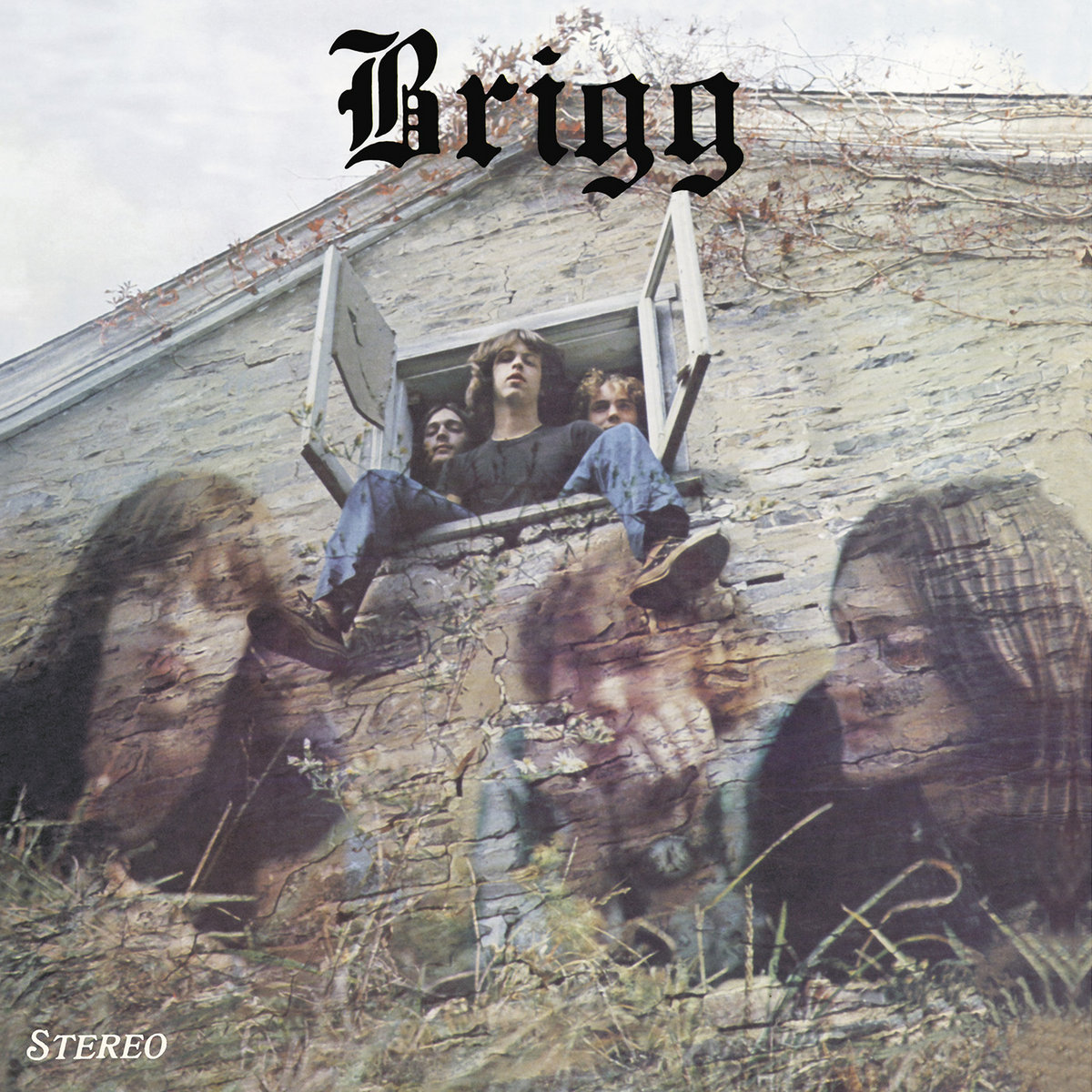
Rob Morse (Harry Morse): The “Haunted”, a stone farmhouse in Danville, on Kaseville Road. The place was abandoned and we would go in and check it out. As I recall, whoever had lived there had departed very quickly, leaving food on the table. There was a deep hand dug well in the corner of the dirt floor basement and when shining a flashlight down the well, it appeared that a facedown corpse could be appreciated. We never explored that part further, but I suppose that was the basis of the “Haunted”.
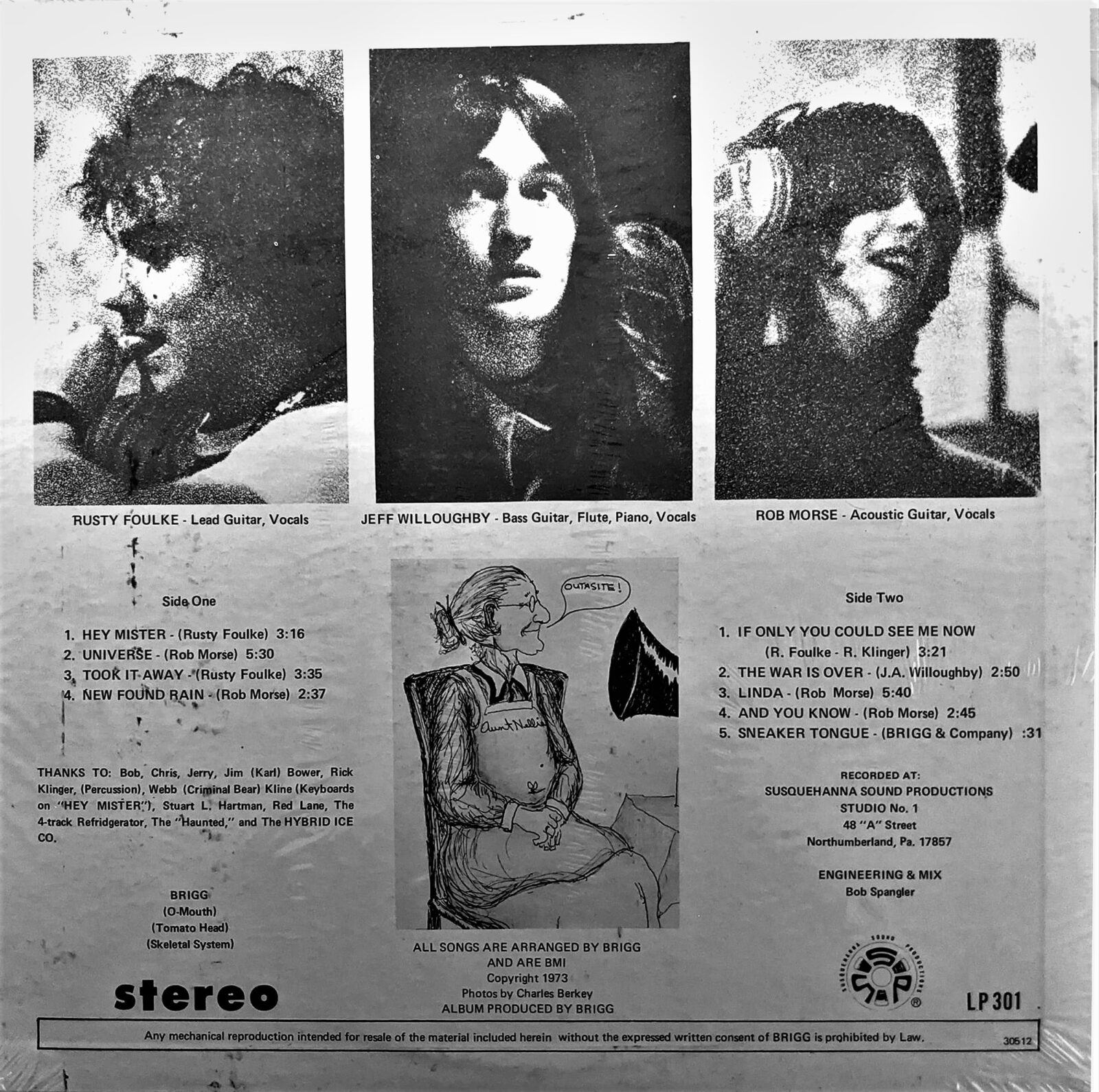
What happened next for the band?
Rob Morse (Harry Morse): When I went off to prep school, Hybrid Ice was formed. I remember the first song that I heard them play was ‘Honky Tonk Women’ that The Rolling Stones had in heavy rotation at that time.
Originally were you called Part Two? Please clarify that.
Jeff Willoughby: Already answered that, but I do want to mention that Rusty left Hybrid Ice for a year in 1976 and joined back up with Rob and a bass player named Shane Kelley. They called the band “XYZ” and played gigs and recorded some material at the time.
What’s the story behind your 1982 album? Was this one also self-released? If so, how many copies were pressed and where were they mostly sold?
Jeff Willoughby: Rusty was the principal songwriter on that Hybrid Ice album. He suggested that we follow the Brigg model and record it and produce it ourselves. We had just begun playing the Baltimore club circuit which was very lucrative at the time. We hired John Palumbo of the band Crack the Sky to produce. He brought an engineer, Victor Giordano, with him and we had a great time laying down tracks.
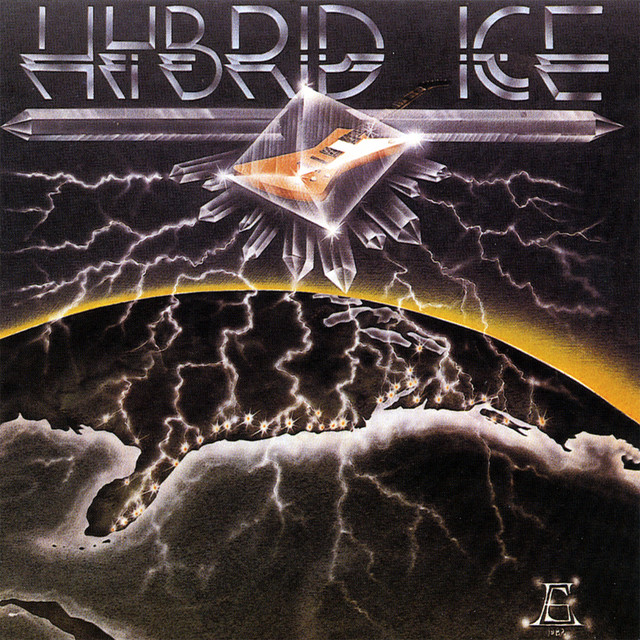
After John and Victor left, Rusty served as mix engineer and we got the record done. Probably shy from our Brigg experience, we ordered only 1,000 copies and placed them in local record stores and in various malls in the towns and states where we played. It was released on December 17, 1982 – (not accidentally) one week before Christmas. The album completely sold out in one weekend. We ordered more, the same thing happened. And again, ordering more copies each time. By this time ‘Magdelene’ was the preferred track and was receiving considerable airplay in the mid-Atlantic region on commercial radio and college stations. The song charted at #5, if memory serves, at its highest. I don’t honestly know the total sold because the people at the studio were handling all that. Two more points: 1. For the record collectors out there, the first pressing had a black disc label with silver ink, an homage to The Beatles ‘She Loves You’ on the Swan label. All subsequent pressings had a blue disc label with black ink. 2. Boston covered ‘Magdelene’ on their ‘Walk On’ album. To date, it’s the only cover song Boston has ever recorded.
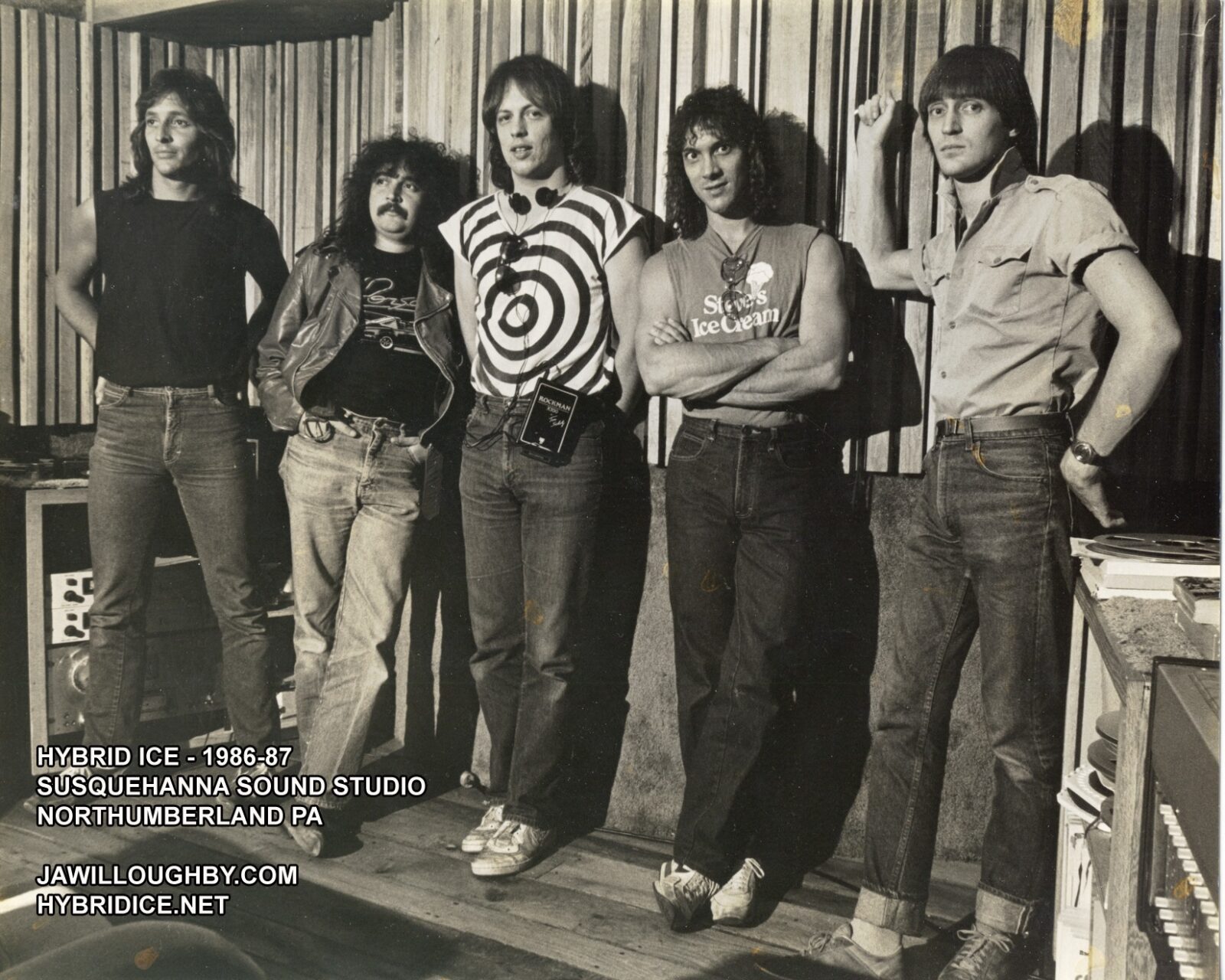
What influenced the band’s sound?
Jeff Willoughby: All five band members could sing lead in their respective ranges. So, the covers we played had multiple harmonies, like songs by Yes, Kansas, Queen’s ‘Bohemian Rhapsody’, Boston…those vocal layers and structures were absorbed into our own music.
You played with many well known bands such as The Beach Boys, Toto, Bad Company, Ted Nugent, Hall & Oates, Todd Rundgren, Kansas, Foreigner, Joan Jet, Steppenwolf, 38 Special, The Outlaws and the Dixie Dregs. What can you say about the time with Hybrid Ice?
Jeff Willoughby: It was the best job in the world. We rode to “work” in a limo and got figuratively patted on the back every three-and-a-half minutes at the end of each song by our audience. We all got along and truly believed that we were each others’ best shot at making it. Mutual respect. But the best part was we ran the group like a business with “in-house” accounting and bookings, the band members themselves taking on all the various behind-the-scenes duties. By having our own salaried road crew and owning our own sound system, our sound was consistent from one night to the next. We worked hard to maintain a consistent quality to our shows. It worked. It became a proven model.
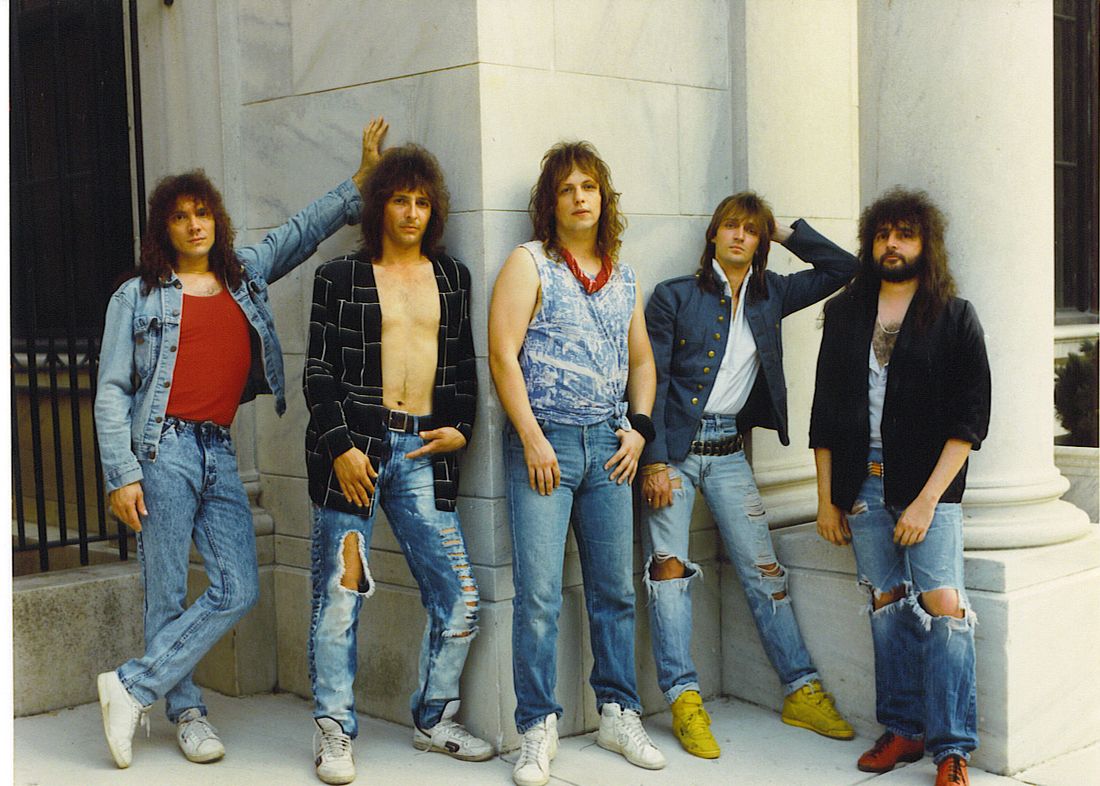
The band was active for several years. Can you share a few words about your second album, ‘No Rules’ from 1987?
Jeff Willoughby: The band actively performed for 51 years. I wish ‘No Rules’ had come out sooner.
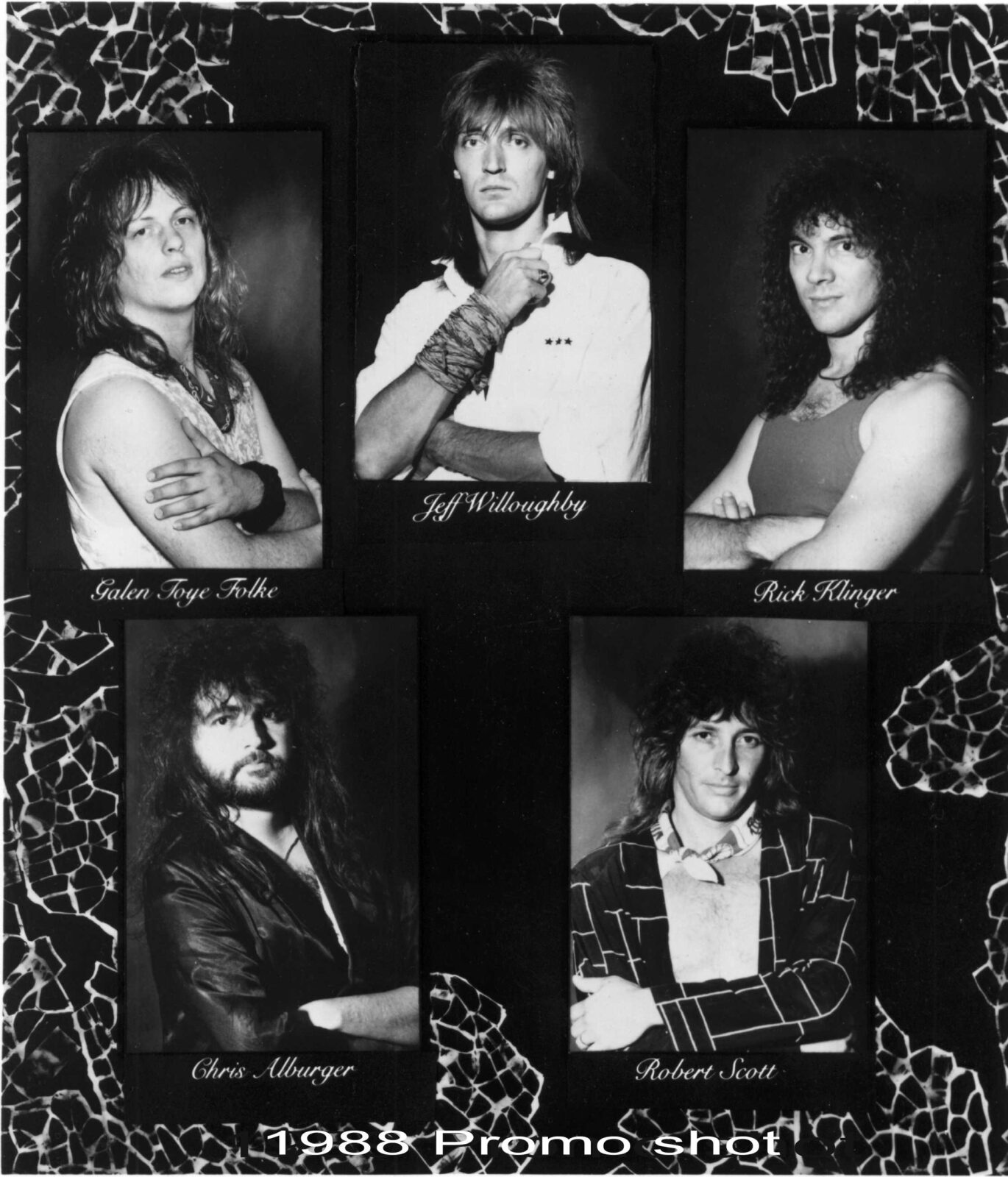
By 1987 trends in music had changed toward a much less refined sound like we had. Although we did get airplay for a few songs, the industry had changed and I felt less “involved” overall, with the scene. I still like the album and feel the songs and performances are solid.
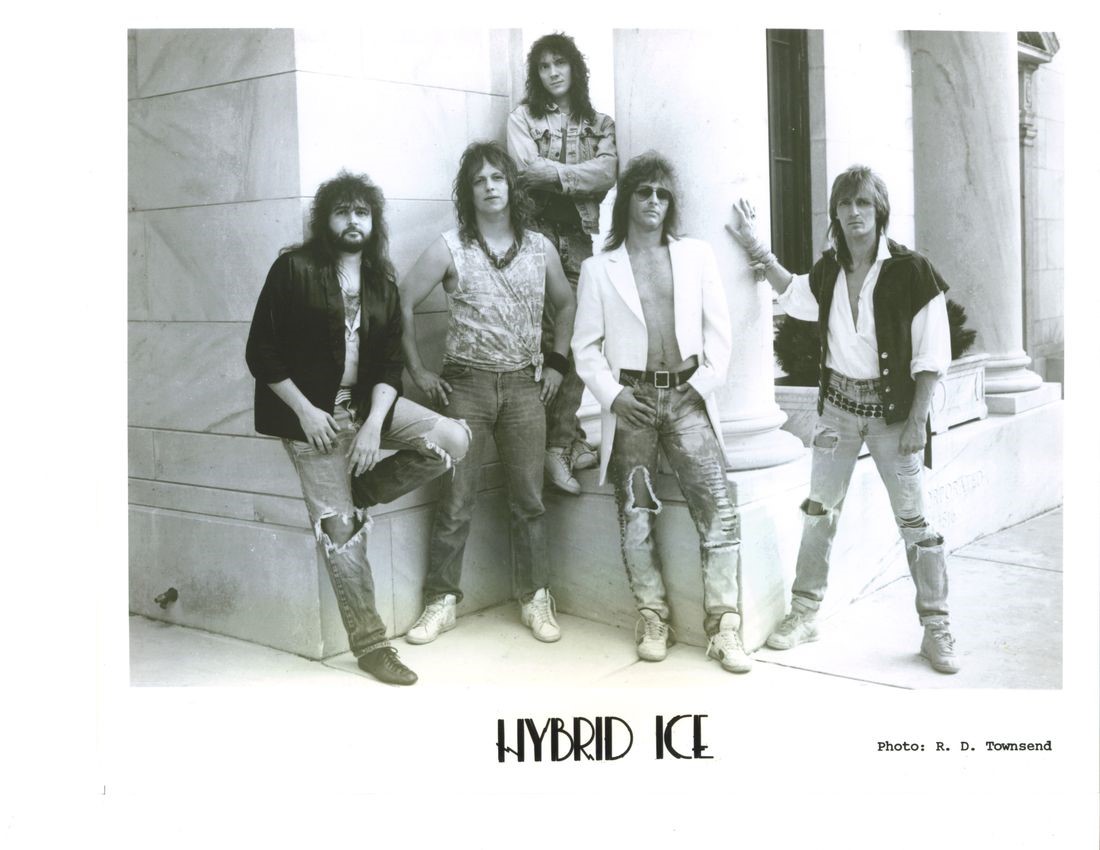
Looking back, what was the highlight of your time in the band? Which songs are you most proud of? Where and when was your most memorable gig?
Jeff Willoughby: Realizing how much time we spent together and enjoying each others’ company. When that’s gone, and you’re not in the band any more, that’s a big void. As far as memorable gigs, I think they were all memorable in their own unique way. It didn’t have to be the biggest arena with a headliner or a huge rock club. I remember a lot of gigs favorably because of the people who attended. The fans made the gigs memorable. I am friends with many of them on Facebook now and they continually remind me of the memories they carry with them, just as I do.
What currently occupies your life?
Jeff Willoughby: I’ve retired from live performances but I’m looking forward to getting started on the new Brigg album! Other than that, I’m generally enjoying my time with my wife, children and grandchildren in this earthly adventure. I’ve written and released 10 books since 2014. And I have an experimental aircraft project I am building in my garage. I plan to get back to writing stories for a third book in my short story collection.
Rob Morse (Harry Morse): I have had a successful career “Passing Gas” in Anesthesia from which I am looking forward to retirement. I have always stayed musical, writing, playing and singing, producing CDs for a number of bands.
Currently, I am looking forward to the planned release of the next ‘Brigg’ album in May of 2023, 50 years after the first album. We are currently tracking this release.
Thank you for taking your time. Last word is yours.
Jeff Willoughby: I consider myself very fortunate to have had the life experiences I have had. We didn’t get the brass ring, ultimately, but we had a lot of fun and made a lot of good friends along the way and were able to keep a roof above our heads and food on the table. And it makes me very pleased to know that our loyal fans feel we have contributed something unique and enjoyable to the music of this world.
Rob Morse (Harry Morse): Thank you for the opportunity to reflect and comment on “Brigg” and “Hybrid Ice”. I trust that this article will provide some insight and enjoyment for those who are interested. For myself, this record has not only been an oddity, but continues as a very interesting occurrence in my life. Vinyl purists appear to be drawn to this record. I have purchased CDs from the US and Korea, and have seen a single copy of ‘Brigg’ sell on eBay for over $500.00. I have seen sales and noted blogs all over the world and I continue to be amazed. I am sincerely grateful for all this interest, and again I am grateful to you Klemen for your consideration of this very unique anomaly.
Klemen Breznikar
Brigg Facebook
Hybrid Ice Official Website / Facebook
Jeff Willoughby Official Website / Facebook / Instagram / Twitter / LinkedIn / YouTube
Rusty Foulke Facebook
Rob Morse (Harry Morse) Facebook
Guerssen Official Website / Facebook / Instagram / Twitter / Bandcamp / YouTube
Gear Fab Records Official Website / Facebook

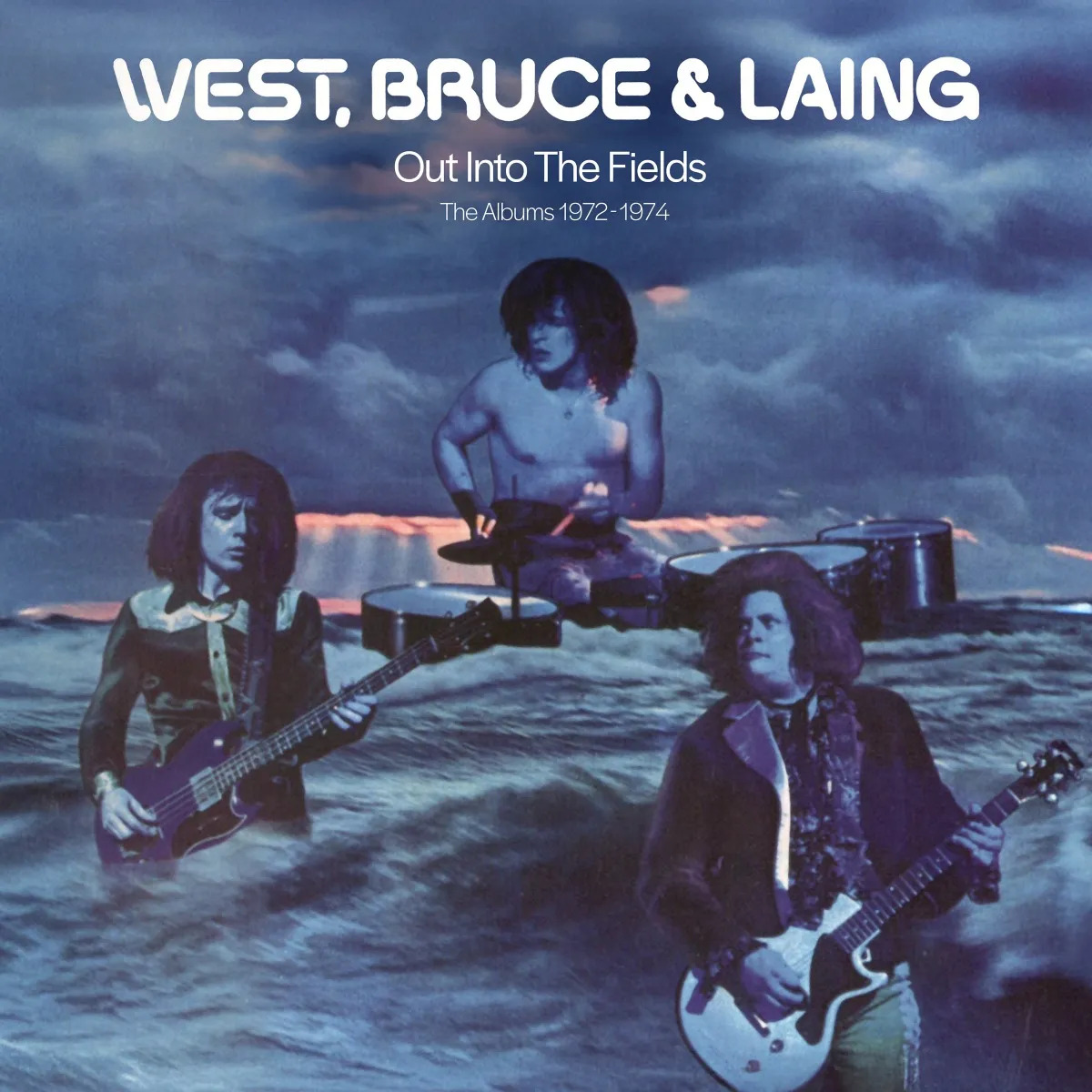
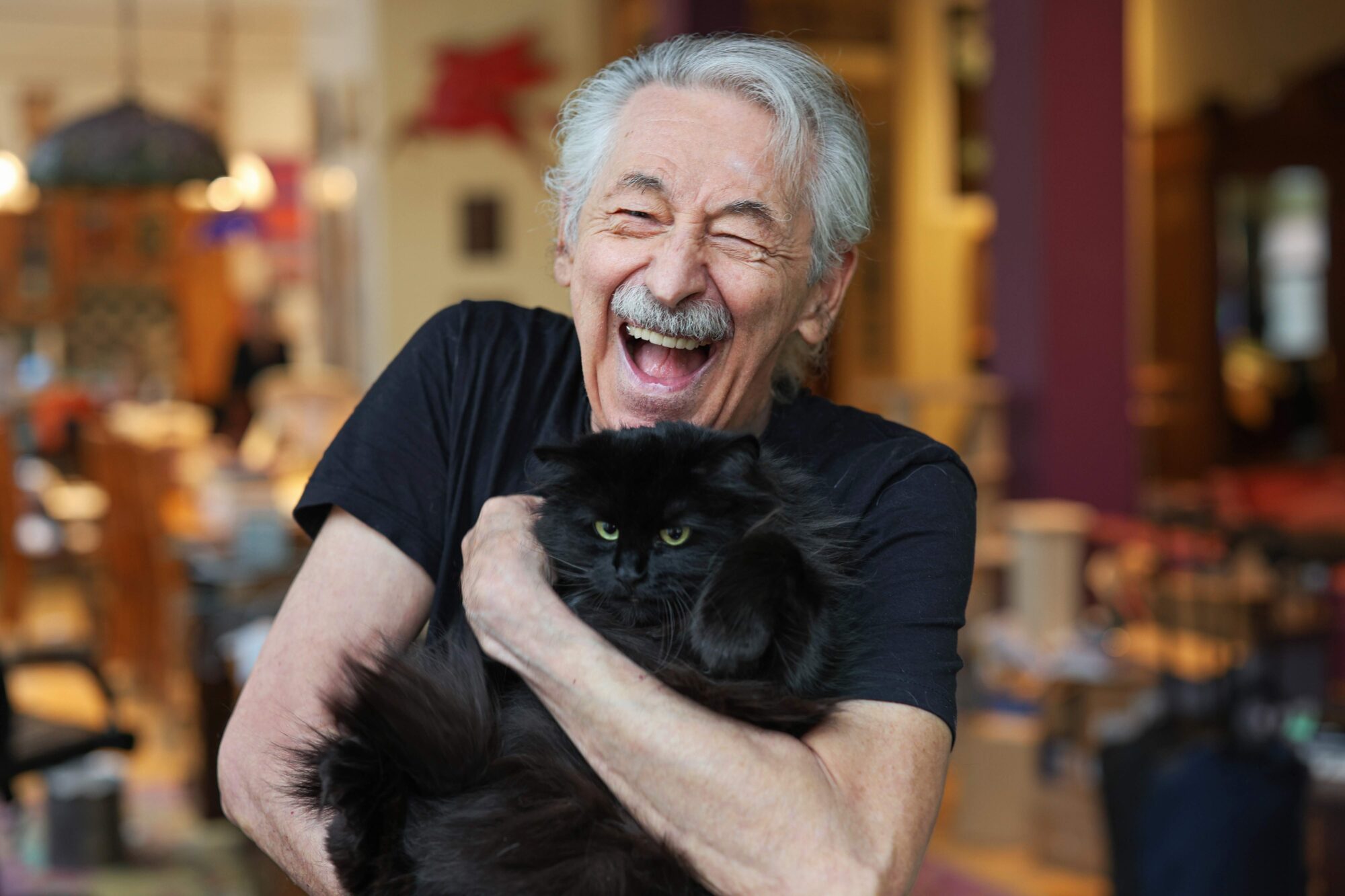
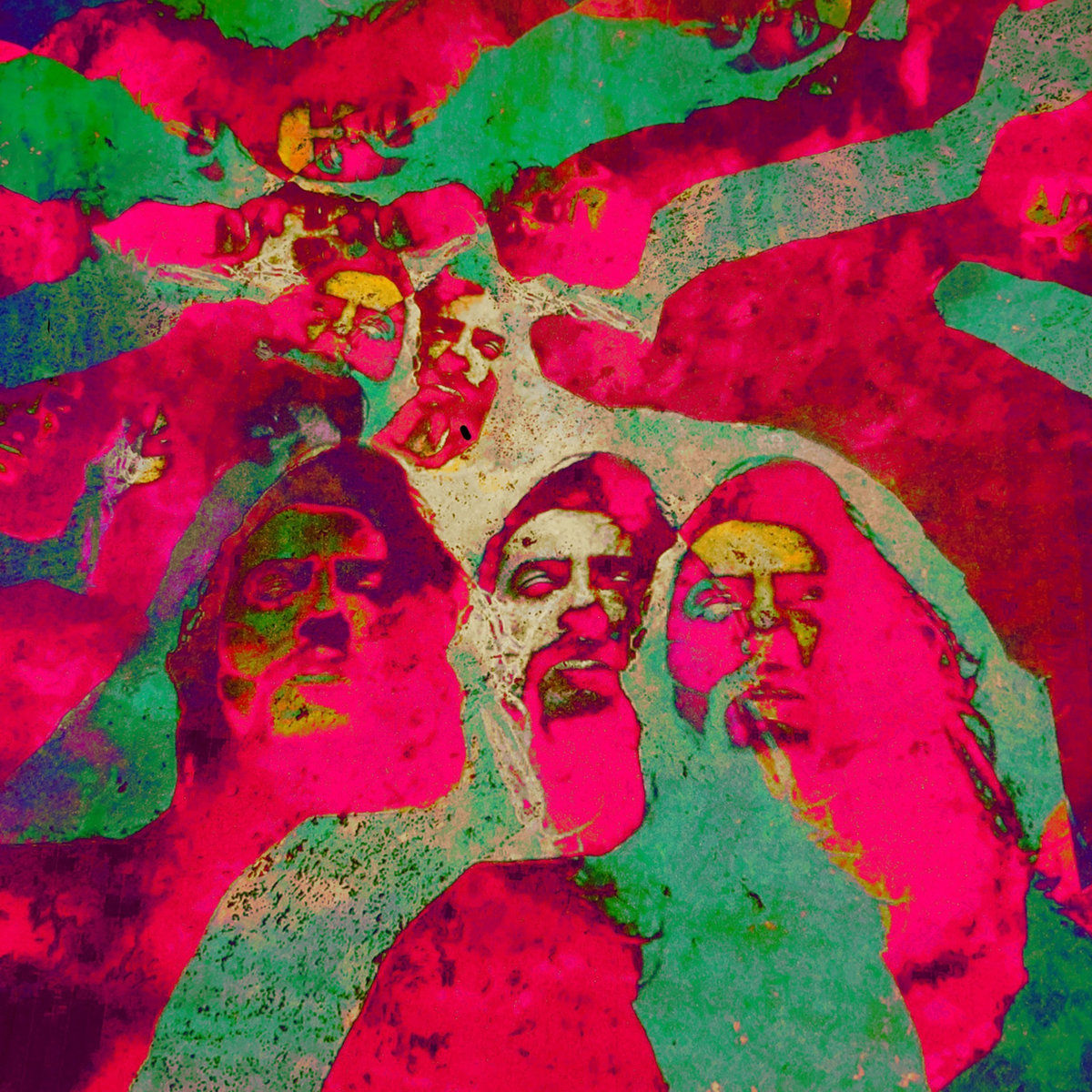
Thank you Klemen !
One of the best interviews in the site, the band members are articulate and they have an interesting story. Another interesting discovery from the golden age.